By Amelia Tyman, Learning and Development Consultant
In a turbulent year for business leaders across the country, we’ve learnt a lot about effective leadership and have continued to produce the best results possible in the face of adversity. In a post-pandemic world, where staff shortages are common and the unemployment rate is predicted to reach around 5.5% in the autumn, the significance of a diverse and multifaceted workforce is becoming more important to leaders.
Diversity often comes with a number of misconceptions. Most obviously is limiting diversity to focus only on race and culture. Although the inclusion of various ethnicities, race and cultures is important – true diversity offers much broader opportunities. A culture of diversity is at the heart of every successful business and it plays an important role, helping teams to thrive and think outside the box.
Others fear that an emphasis on diversity results in disadvantaging some groups. In 2020, the Black Lives Matter (BLM) campaign was opposed by some who felt that ‘all lives matter’, suggesting the BLM movement felt that black lives were more important than others. This is not the case – when one house is on fire, you don’t douse every house in the street with water. All of the houses matter, but the house on fire is what needs water and urgent action. When one group is persecuted or marginalised, no matter who they are, they need our support to promote their needs at that moment – this does not diminish or remove the needs of others.
Similar problems can arise in the workplace when a business has no history of embracing inclusivity. However, in 2021 – the definition and importance of diversity is evolving.
Diversity in the workplace starts with the cultivation of an inclusive environment – learning every individual’s abilities and allowing them to play to their strengths. Embracing an ethos which welcomes self-expression gives your team members a platform to share their unique experiences and perspective. Offering inclusivity to every employee, it empowers them and your business to achieve their full potential.
More specifically, utilising the diverse backgrounds and experiences of your workforce improves the chances for innovation, creative problem solving and bringing positive changes. It promotes the productivity and performance of the organisation by accessing the skills and talents from a larger number of employees, rather than relying on a small, narrow group. It promotes harmony, strengthens workplace relationships and encourages openness and honesty from all employees – establishing your business as a cohesive organisation.
With over a third (34%) of employees worldwide feeling that their company doesn’t listen to their ideas, diversity should be fundamentally embedded into businesses’ standard operating procedures. Whilst creating a truly diverse culture is a ‘work in progress’ for some businesses, it’s important to note that many prospective employees now prioritise an organisation’s diversity – having a significant impact on whether they choose to work for the company. Two out of three (67%) candidates actively look for companies that are distinguished as diverse workforces and take this into account when accepting job offers.
Following a year of hardships and modernisation for UK businesses, it’s essential for leaders to prioritise inclusivity by working closely with every team member and providing holistic support to them. With the hopes of diversifying your business, we’re sharing four tips for you to establish or reinforce within your own culture of diversity.
Prioritise openness
Don’t be afraid to speak out if you feel something isn’t right and address the issue. This could be a problem with:
- Financial management.
- Poor performance.
- Outdated technology.
- A less favourable reputation than a rival business.
Businesses attempting to hide their imperfections from their employees risk creating a toxic environment where staff members don’t feel respected or valued.
Gain your employees perspective on policy
Almost all policies and training materials will affect the work-life balance of your workforce. Writing these policies in consultation with employees allows the opportunity to address the finer details of every policy, meeting the needs of the whole workforce.
A study in 2019 found that around three-quarters of employees in underrepresented groups — women, racial and ethnic minorities, and LGBTQ employees — do not feel they’ve personally benefited from their companies’ diversity and inclusion programs.
Lead by example
Assess your own history, behaviours and personal biases, ensuring that these exemplify what it means to embrace diversity before trying to make fundamental changes.
Talk about diversity and inclusivity
Opening the conversation through questionnaires, focus groups, webinars or a task force will give clarity on the role of diversity and inclusivity in your business.
At EDN, we’ve formed an Inclusion Taskforce with our educational partners, HIT Training and Connect2Care, allowing us to work with the brilliant minds of our employees, gaining unique perspectives from a diverse range of cultures and backgrounds.
Although making changes requires a period of adaptation, nothing worth achieving comes easily. Prioritising diversity will help retain staff, intrigue new ones motivated to be a part of your diverse and inclusive team, contributing to the inevitable positive results that will follow. A robust culture of diversity and inclusion can take your results, problem-solving ability and company-wide morale to new heights and people will aspire to be part of your team.
Amelia has worked for organisations such as Hilton Worldwide and the Walt Disney Company. Throughout her career, she’s been involved in training and developing staff at all levels to promote motivation, engagement and progression. She’s been working in Learning and Development for seven years, now specialising in the delivery of Level 3, 4 and 5 Team Leading and Management qualifications.
For more information on The Executive Development Network (EDN) and our next level management training visit https://edn.training/.
